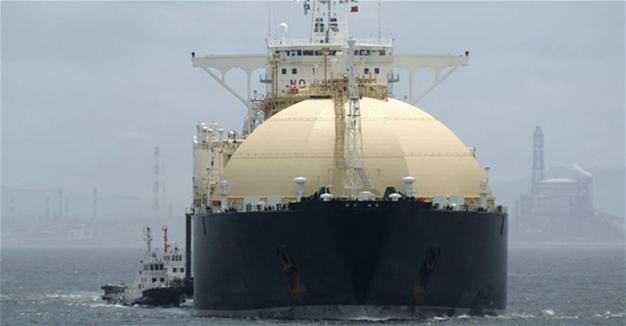Turkey to boost gas capacity with investment, floating units
ANKARA - Anadolu Agency

The BOTAŞ Pipeline Corporation aims to increase the daily capacity of Turkey’s natural gas system to 350 million cubic meters (mcm) per day from the current 200 mcm, according to official statistics.
Figures reveal that the company currently imports 42 mcm from Russia’s West Line and 47.3 mcm via the Blue Stream from Russia per day.
The country also buys 19 million cubic meters of gas from Azerbaijan and 28.5 mcm from Iran.
Turkey has two Liquefied Natural Gas (LNG) terminals, the Aliağa and the Marmara Ereğlisi. The Aliağa has a capacity of 25 mcm of gas transfer per day while Marmara Ereğlisi has 18 mcm. BOTAŞ plans to increase Marmara Ereğlisi LNG Terminal’s daily capacity to 27 mcm by 2017.
In September, BOTAŞ took over the North Marmara underground natural gas storage plant from Turkish Petroleum. The plant transfers 25 mcm of gas per day to the Turkish gas system, but plans to increase this capacity to 75 mcm per day by 2020.
Turkey’s peak gas demand is around 230 mcm per day.
BOTAŞ aims to increase Turkey’s energy supply security and diversify its gas sources, and with this aim, the company is working on expanding LNG storage and Floating Storage Regasification (FSRU) units.
Floating regasification is a flexible, cost-effective way to receive and process shipments of liquefied natural gas (LNG). Floating regasification is increasingly being used and it also offers a temporary solution until onshore regasification facilities are built.
Two FSRU projects, with 20 mcm of capacity in the Gulf of İskenderun, in the eastern Mediterranean Sea, on the southern coast of Turkey and the Gulf of Saros, off the Gallipoli Peninsula in northwestern Turkey, will continue in 2017 while construction of the projects is planned for completion in 2019. The total capacity of both projects will be 40 mcm per day in total.
Turkey’s transmission system operator is also developing the natural gas storage facility of the Tuz Gölü (Salt Lake).
The facility in central Turkey near Tuz Gölü is planned to have a gas capacity of 480 mcm, with a withdrawal rate of 20 mcm per day.
BOTAŞ plans to increase this capacity to 40 mcm in 2017 and to 80 mcm in the mid-term.
Turkey aims to consolidate its position centered among energy-rich countries, reduce its energy import dependence and increase reliance on domestic resources.
Turkey’s energy imports in the January-September period of 2016 totaled $19.5 billion, according to the Turkish Statistical Institute (Turkstat). Last year, with low oil prices, Turkey’s energy import bill totaled $38 billion compared to $55 billion in 2014.
 The BOTAŞ Pipeline Corporation aims to increase the daily capacity of Turkey’s natural gas system to 350 million cubic meters (mcm) per day from the current 200 mcm, according to official statistics.
The BOTAŞ Pipeline Corporation aims to increase the daily capacity of Turkey’s natural gas system to 350 million cubic meters (mcm) per day from the current 200 mcm, according to official statistics.